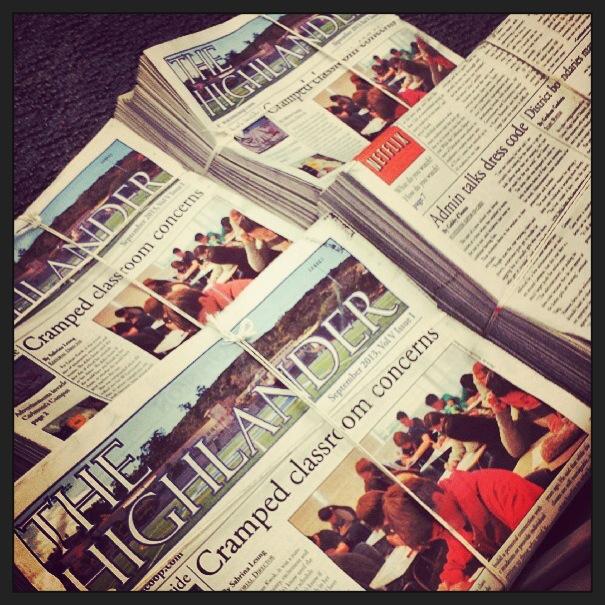Journalism education is facing a storm of peril.
The court’s ruling in Hazelwood School District v. Kuhlmeier, which concerned high school newspapers, has had far-reaching consequences over the past two decades. Not only has it changed the way journalism is taught at high schools, it has made it more difficult for high school students to learn the important lessons about democracy that come from publishing, or simply reading, serious newspapers.
Journalism classes are being drowned out by the belief to drill high school students on core standardized-testing subjects and to transform us into professional scantron bubblers. States and districts are squeezing electives and extracurricular offerings to save money. Image-conscious school administrators are removing some of the profession’s best teachers and school publications in retaliation for student work that is considered “negative” or “controversial.”
The Brookings Institution reported in December 2009 that only 1.4 percent of the mainstream media is going toward education coverage. Some people say that giving students a voice is harmful to the school environment because it gives students power. However, adults and students need candid, uncensored student journalism if they are to have any idea what is going on inside the schools and student life.
In this economic time, those who study journalism, teach it, or value it must be prepared to defend the continued importance of journalism education, despite the facts that newsroom jobs are melting away. In fact, The Chicago Tribune, one of the largest print publications in the U.S, announced in August 2013 that they would be shutting down their photography department.
While the journalism industry might be shifting its gears, this case is an easy one to defend. According to a study conducted by Indiana University, 20 percent of students who worked for their school newspaper achieved higher grade point averages, scored better on the ACT and demonstrated better writing skills than students who didn’t.
Think high school journalism is pointless? Think again.
Today, all workplaces require employees to have several skills: analytical thinkers, clear writing, and sensitivity to deadlines. This should sound familiar to all journalists-because it’s the package of skills that journalists convey through hands-on experiences. Leadership and teamwork? Check. It’s actually one of the few school activities that accurately simulate a work environment. That’s because it is a work environment. The Editor-In-Chief is like the CEO, and all its staff members are constantly overwhelmed with numerous deadlines. The entire journalism staff must work together to create one big product at the end of each day, week or month.
Journalism promotes ethics. Schools are constantly dealing with bullying. Wouldn’t it be wonderful if the school could reinforce to the students the importance of verifying facts, correcting errors and the impact of words?
This is exactly journalism. Get a source wrong, and you could get sued. The values imparted by working in a newsroom are the values that every educator and taxpayer, who is paying $590 billion a year to support public education, wants every young citizen of a democratic society to learn, practice and live by.
By working in journalism, students experience what it means to be a “professional” and how to learn from failure. As high school journalists, we learn to accept interview rejections and how to deal with strict deadlines.
High school journalism also gives students a sense of empowerment. Not all of us can become Homecoming Queen, Football team captain or ASB president. Disempowered kids are at the greatest risks for high school dropouts or even in worse cases, suicides. But anyone can join the newsroom, where the creativity and smarts that mark students suddenly become assets and tools needed to survive in this industry. While some say that giving students a voice at school can lead to chaos, students who are allowed to make their own editorial judgments experience pride and validation. Covering an important issue at school can give a student a sense of importance and self-worth.
And finally, to those who think students who study journalism may not guarantee a lucrative job, ask Emmy-awarding winning Stephen Colbert, or TLC’s Talk Show host Clinton Kelly.
With America facing a deficit of civic engagement, journalism remains a portal through which students engage with the world outside school walls. As high school journalists, we believe that it’s crucial and essential that the doorway remains open and inviting.

